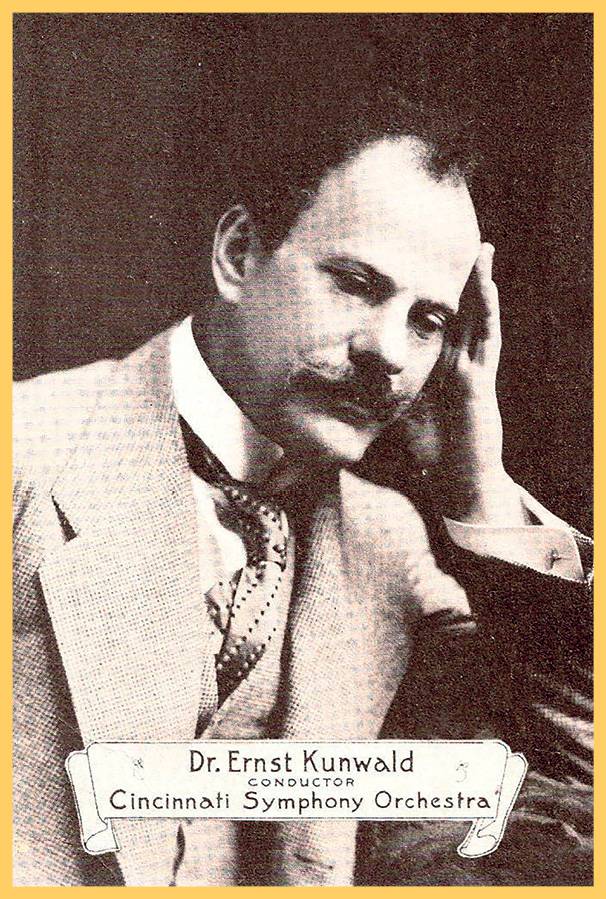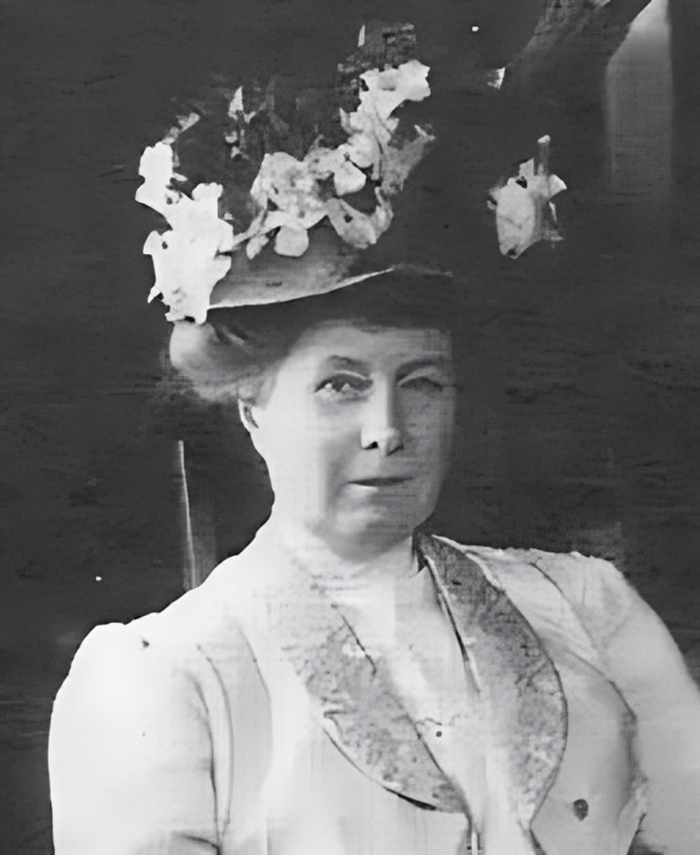Pops Sidebar: Anti-German Sentiment + Ernst Kunwald
by Tyler M. Secor
On November 21, 1917, the day before the Cincinnati Symphony Orchestra was due to take the stage with conductor Ernst Kunwald at the Syria Mosque in Pittsburgh, Director Charles S. Hubbard of the Department of Public Safety, at the urging of the Daughters of the American Revolution, issued the following statement that “all German music should be excluded from the program, and that Dr. Kunwald must not appear as the conductor.” Kline L. Roberts, manager of the Cincinnati Symphony Orchestra, along with the Pittsburgh presenters, decided to postpone the concert.

With rising anti-German sentiments and fear of German/Austrian spies on American soil, Austrian conductor Ernst Kunwald’s refusal to stop playing German music put him on the U.S. government’s radar. The canceling of the November 22, 1917 concert was just the beginning of a prolonged ordeal with the federal government.
On November 23, 1917, the Cincinnati Enquirer quoted Mrs. Annie Sinton Taft, President of the CSO:
For some time I have had in my hands Dr. Kunwald’s resignation as director of the Cincinnati Symphony Orchestra, on the ground that he did not wish his personality to be in any way detrimental to the interests of the orchestra. I have been unwilling to make it public, still less to accept it, being convinced that Cincinnati’s musical interests could scarcely receive a severer blow than to lose the services of Dr. Kunwald. His musical genius and his unswerving loyalty to the city during the five years he has been with us have made our orchestra one of the best in the country. Its decline from its present high standing would affect injuriously every educational interest in the city, both public and private.
Dr. Kunwald has always considered himself the conductor of an American orchestra and has voluntarily fulfilled every requirement belonging to that position.
On account of the recent attitude of some of the Pittsburg [sic] authorities I feel that in justice to Dr. Kunwald the public should understand his position.
The matter will be given careful consideration by the Board of Directors of the association.

On December 8, 1917, the day after Congress declared war on Austria-Hungary, Bulgaria and the Ottoman Empire, Dr. Kunwald was arrested by a U.S. Marshal at the Time-Star building in Cincinnati.
The reason?
As a precautionary measure, Dr. Kunwald was arrested under the Alien Enemy Presidential Proclamation, Regulation No. 12, signed by President Woodrow Wilson on April 6, 1917. He was arrested “based upon remarks he is alleged to have made against the Government of the United States and President Wilson prior to the declaration of war.” Upon arrest, Kunwald stated the following:
I have regarded myself as a guest in this country. Neither before nor after the United States entered the world war have I said or done anything contrary to the laws of the United States. My conscience is clear in this respect. I am an Austrian subject and loyal to my country, but I have done nothing to offend the United States so far as I have knowledge. I have had no connection with the Austrian army since 1910.
Dr. Kunwald was imprisoned in Dayton, which lasted only 12 hours, with the U.S. Attorney General Thomas Gregory paroling Kunwald pending further investigation. A little over a month later, and with no further evidence, a new warrant was issued by the Department of Justice, which was signed by the head of the Alien Enemy Bureau, J. Edgar Hoover.
The Board of Directors of the CSO finally had to accept Dr. Kunwald’s resignation. And on January 12, 1918, Dr. Kunwald was taken into custody, processed in Dayton and then sent to Fort Thomas, Kentucky to await internment. Dr. Kunwald was registered as Prisoner 721 at Fort Oglethorpe, GA.
The Cincinnati Enquirer on January 30, 1918 published an article about Dr. Kunwald’s activities while interned, stating,
The former Cincinnati orchestra director has practically consented to organize an orchestra from among his compatriots…. Dr. Kunwald appears to be resigned to the life of an enforced guest of Uncle Sam…and is employing his abilities in lightening the routine of internment…. Nearly all the interned alien enemies are musically inclined and Dr. Kunwald will have no difficulty in organizing his musicians.
Dr. Kunwald remained at Fort Oglethorpe until his release on May 19, 1919, whereupon he and his wife moved/were deported to Germany. He was general music director in Königsberg 1920–27 and principal conductor of the Berlin Symphony 1928–32. With the appointment of Adolf Hitler in 1933, Dr. Kunwald, who was Jewish, left with his wife for Vienna. He lived in Vienna until his death on December 12, 1939.